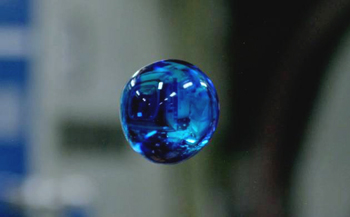New Delhi, Apr 6: There is a great news for people who love sleeping the most. Exciting news for all such lazy lads out there! What if you get paid for doing the easiest task in the world – lying in the bed? Sounds too good to be true, right?
 But it"s true as there is a job offer which pays you €16,000 (£13,700 or $17k or Rs 11.2 Lakh) for spending two months or 60 days lying in bed. The offer comes from the Researchers at France"s Institute for Space Medicine and Physiology who are looking for volunteers who can lie for 60 days in bed.
But it"s true as there is a job offer which pays you €16,000 (£13,700 or $17k or Rs 11.2 Lakh) for spending two months or 60 days lying in bed. The offer comes from the Researchers at France"s Institute for Space Medicine and Physiology who are looking for volunteers who can lie for 60 days in bed.
The idea is to study the effects of microgravity. "The idea with this study is to reproduce the weightlessness of the International Space Station (ISS)," Dr Arnaud Beck, coordinating physician of the study, told 20 Minutes.
Volunteers are required to spend three months on the study which has been split into three phases. "During the first two weeks, our scientific teams do a series of examinations and measurements on the volunteers," said Dr Beck.
"There follows a period of 60 days during which they must remain totally bedridden, with the head slightly inclined downwards, at least six degrees."
The final fortnight with be given over to "rehabilitation and physical recovery and new measures to study the effects of prolonged bed rest".
The participants require to spend 60 days eating, sleeping, washing and do whatever they do in their casual routine while staying permanently lying down in the bed.
"The rule of the game is to keep at least one shoulder in contact with the bed or stretcher," said Dr Beck.
The position is open only for males who must be non-smokers aged between 20-45. They must have perfect health, regularly practice sport, have no allergies and a BMI of between 22 and 27.





Comments
Add new comment